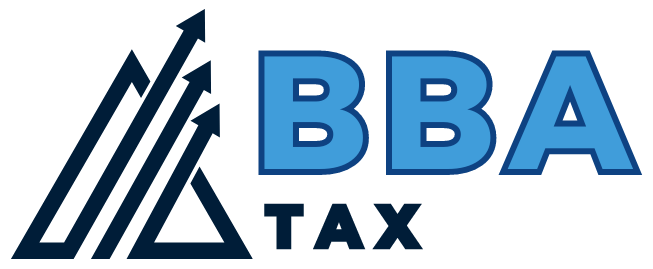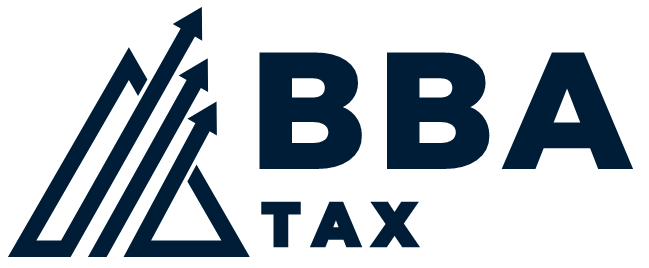Choosing the right accountant is crucial for the financial health and success of both individuals and businesses. With a multitude of options available, particularly in the bustling capital of Ottawa, finding the right fit can be challenging. Whether you need help with personal taxes, corporate taxes, bookkeeping, tax audit defense, online filing, or financial management services, BBA Tax is here to guide you through the process. This blog will provide comprehensive insights into what you should consider when selecting the right accountant to work with.
1. Understanding Your Needs
Before beginning your search for an accountant, it’s essential to identify your specific requirements. Different accountants specialize in different services, and understanding what you need will help narrow down your choices. Here are some common services provided by accounting firms in Ottawa like BBA Tax:
- Bookkeeping: Keeping track of your financial transactions.
- Corporate Taxes: Managing tax filings and compliance for businesses.
- CRA Audit Defence: Representing you during a tax audit and ensuring compliance.
- Personal Taxes: Preparing and filing individual tax returns.
- Incorporation: Our goal is to ensure your new entity is well-prepared, compliant, and poised for success.
- Financial Management (Virtual CFO): Providing strategic financial planning and management.
Once you have a clear understanding of your needs, you can start looking for an accountant who specializes in those areas.
2. Researching Potential Accountants
Ottawa is home to many accountants and accounting firms. To find the right one, you’ll need to conduct thorough research. Here are some steps to help you:
a. Ask for Recommendations
Start by asking for recommendations from friends, family, colleagues, or business associates. Personal referrals can be very reliable as they come from trusted sources.
b. Search Online
Use online resources to find accountants in Ottawa. Look for firms with good reviews and ratings. Websites like Yelp, Google Reviews, and specialized Canadian accounting directories can be helpful.
c. Check Professional Associations
Professional associations such as the Chartered Professional Accountants of Ontario (CPA Ontario) can provide lists of certified accountants. Membership in such associations is a good indicator of an accountant’s qualifications and adherence to professional standards.
3. Evaluating Qualifications and Experience
a. Certifications and Licenses
Ensure that the accountant you choose is certified and licensed. In Canada, CPAs (Chartered Professional Accountants) are highly regarded and must meet stringent educational and professional standards.
b. Experience
Consider the accountant’s experience, particularly in the areas that matter most to you. An accountant with experience in corporate taxes and tax audit defense might be more suitable for businesses, while someone with a strong background in personal taxes and bookkeeping might be better for individuals.
c. Specializations
Some accountants specialize in specific industries or services. If you belong to a niche industry or have unique financial needs, look for an accountant with relevant experience.
4. Assessing Compatibility and Communication
a. Personal Compatibility
The right accountant should be someone you feel comfortable working with. You’ll be sharing sensitive financial information, so trust and rapport are crucial. Arrange a meeting or consultation to gauge their personality and communication style.
b. Communication Skills
Effective communication is vital. Your accountant should be able to explain complex financial concepts in a way that you understand. They should also be responsive and accessible when you have questions or need assistance.
5. Understanding the Services Offered
Different accounting firms offer different services. Ensure that the firm you choose can meet all your needs. Here’s a closer look at the services offered by BBA Tax:
a. Bookkeeping
Accurate bookkeeping is the foundation of good financial management. It involves recording all financial transactions, managing accounts receivable and payable, and reconciling bank statements.
b. Corporate Taxes
Corporate tax compliance is critical for businesses. An experienced accountant will help you navigate complex tax laws, optimize tax strategies, and ensure timely filings.
c. Tax Audit Defence
If you’re facing a tax audit, having an accountant who specializes in tax audit defence is invaluable. They will represent you, prepare necessary documentation, and ensure compliance with tax authorities.
d. Personal Taxes
Personal tax preparation and filing can be complex, especially if you have multiple income sources or investments. A qualified accountant will help you maximize deductions and credits, ensuring you pay the least amount of tax legally possible.
e. Online Filing
With the advent of digital technology, online filing has become the norm. Your accountant should be proficient in electronic filing to ensure timely and accurate submissions.
f. Financial Management (Virtual CFO)
For businesses that cannot afford a full-time CFO, a virtual CFO service can provide strategic financial planning, budgeting, forecasting, and management reporting. This service helps businesses make informed financial decisions and achieve long-term success.
6. Considering the Cost
a. Fee Structure
Accountants may charge hourly rates, fixed fees, or a combination of both. Understand the fee structure and ensure it aligns with your budget. Be wary of rates that seem too good to be true, as quality services come at a price.
b. Value for Money
While cost is important, it shouldn’t be the sole factor in your decision. Consider the value you’re getting for your money. A good accountant can save you time, reduce your tax liability, and provide peace of mind.
c. Transparency
Ensure that the accountant provides a clear and detailed fee structure. There should be no hidden costs, and you should understand what services are included in the quoted price.
7. Checking References and Reviews
a. References
Ask the accountant for references from current or past clients. Speaking to these references can give you insights into the accountant’s reliability, professionalism, and quality of service.
b. Online Reviews
Check online reviews and ratings on platforms like Google, Yelp, and the accountant’s website. Look for consistent positive feedback and note any recurring issues mentioned by multiple reviewers.
8. Considering Location and Availability
a. Proximity
While many accounting services can be conducted online, having a local accountant in Ottawa can be beneficial. You can meet in person when needed, and they will be familiar with local tax laws and regulations.
b. Availability
Ensure that the accountant is available when you need them. During tax season, accountants can be very busy, so it’s important to confirm their availability to handle your needs promptly.
9. Evaluating Technology and Tools
a. Software Proficiency
In today’s digital age, proficiency with accounting software is essential. Ensure that the accountant is skilled in using the latest accounting tools and software, such as QuickBooks, Xero, or Sage.
b. Data Security
With sensitive financial information being shared, data security is paramount. Confirm that the accountant uses secure systems to protect your data and complies with privacy regulations.
10. Scheduling a Consultation
a. Initial Meeting
Schedule an initial consultation to discuss your needs and evaluate the accountant’s suitability. This meeting is an opportunity to ask questions, assess their expertise, and determine if they are a good fit.
b. Asking Questions
Prepare a list of questions to ask during the consultation. Some questions might include:
- What experience do you have with clients in my industry?
- How do you stay updated on the latest tax laws and regulations?
- Can you provide references from current clients?
- What is your fee structure?
- How do you handle communication and client updates?
11. Making the Decision
a. Trust Your Instincts
After meeting with potential accountants and evaluating their qualifications, trust your instincts. Choose the accountant who feels right for you and meets all your criteria.
b. Formalizing the Agreement
Once you’ve made your decision, formalize the agreement with a written contract outlining the services to be provided, the fee structure, and other relevant terms.
Conclusion
Choosing the right accountant in Ottawa is a crucial decision that can significantly impact your financial health and success. By understanding your needs, researching potential accountants, evaluating qualifications, and considering compatibility and communication, you can make an informed choice. BBA Tax offers a comprehensive range of accounting services, including bookkeeping, corporate taxes, tax audit defense, personal taxes, online filing, and financial management. With the right accountant by your side, you can navigate the complexities of financial management with confidence and peace of mind.
If you’re looking for reliable and professional accounting services in Ottawa, contact BBA Tax today. Our team of experienced accountants is here to help you achieve your financial goals. Whether you need assistance with personal or corporate taxes, bookkeeping, or strategic financial management, we have the expertise to guide you every step of the way. Don’t leave your financial future to chance—choose BBA Tax for all your accounting needs.



